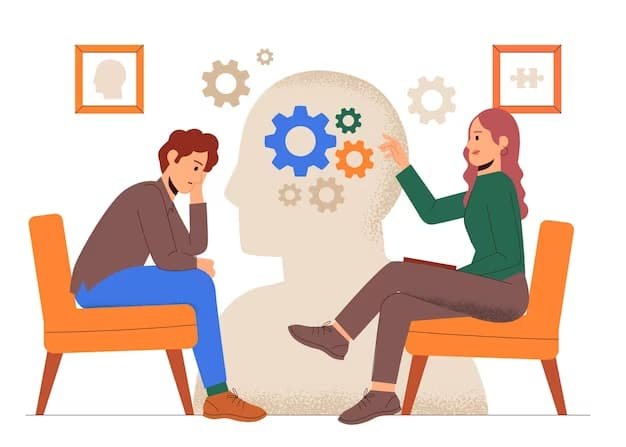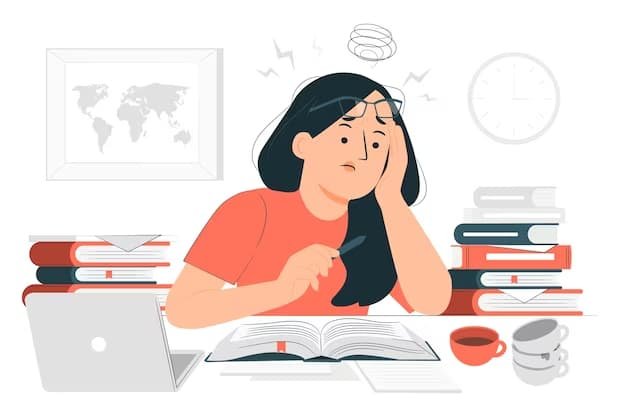In the fast-paced world we live in, it’s no surprise that many people experience anxiety and stress at some point in their lives. The pressures of work, relationships, and personal responsibilities can often feel overwhelming. If you’ve ever found yourself tossing and turning at night, your mind racing with worry, or feeling physically and mentally drained due to stress, you’re not alone. Anxiety and stress are common experiences, but they don’t have to control your life. In this blog, we’ll explore how counseling can help you effectively manage and overcome anxiety and stress.
The Modern Stress Epidemic
Stress is a natural response to challenging situations, a part of the human experience that has evolved to help us navigate threats and changes in our environment. However, the demands of modern life have brought about a chronic stress epidemic. From tight work deadlines and financial worries to personal issues and societal pressures, stressors are abundant, and they can take a toll on our physical and mental well-being.
Anxiety, on the other hand, is closely related to stress but often involves excessive worry, fear, or apprehension about future events. Anxiety can be a normal response to certain situations, but when it becomes chronic and overwhelming, it can interfere with daily life and lead to further stress.
The Vicious Cycle of Anxiety and Stress
Anxiety and stress are interlinked in a vicious cycle. Stressful situations can trigger anxiety and anxiety, in turn, can exacerbate stress. This cycle can become self-reinforcing, making it challenging for individuals to break free from its grip.
Physical Effects of Stress and Anxiety

The physical effects of chronic stress and anxiety are far-reaching. They can include:
- Increased heart rate: Prolonged stress and anxiety can lead to a racing heart, palpitations, and even high blood pressure.
- Muscle tension: Stress can cause muscle stiffness and tension, leading to aches and pains, especially in the neck, shoulders, and back.
- Digestive issues: Stress can affect the digestive system, leading to problems like irritable bowel syndrome (IBS) and indigestion.
- Weakened immune system: Chronic stress can weaken the immune system, making individuals more susceptible to illnesses.
- Sleep disturbances: Anxiety can make it difficult to fall asleep or stay asleep, leading to sleep deprivation and fatigue.
- Mental health issues: Chronic stress and anxiety are linked to an increased risk of depression and other mental health disorders.
How Counseling Can Help
Counseling is a valuable resource for individuals struggling with anxiety and stress. Professional counselors, often licensed therapists or psychologists, are trained to help people understand and manage these issues effectively. Here are some ways in which counseling can help:
1. Identifying Triggers
One of the first steps in managing anxiety and stress is identifying what triggers these emotions. A counselor can work with you to explore the specific situations, thoughts, and behaviors that contribute to your stress and anxiety. This self-awareness is crucial in developing coping strategies.
2. Coping Strategies
Counselors can teach you practical coping strategies to manage anxiety and stress. These strategies may include relaxation techniques, mindfulness exercises, and cognitive-behavioral techniques. They can provide you with the tools to calm your mind and body in stressful situations.
3. Behavioral Changes

Counseling can help you make positive behavioral changes to reduce stress and anxiety. This might involve setting boundaries, improving time management, or addressing unhealthy habits.
4. Communication Skills
Many relationship conflicts contribute to stress and anxiety. Counselors can help improve your communication skills, enabling you to express your thoughts and feelings more effectively. This can lead to better relationships and reduced stress.
5. Support and Validation
One of the key benefits of counseling is having a non-judgmental and supportive environment to share your thoughts and feelings. The validation and understanding provided by a counselor can be immensely comforting and empowering.
6. Medication Management
In some cases, medication may be part of the treatment plan for anxiety and stress. A counselor can work with a psychiatrist or medical professional to ensure that medication. if prescribed, is managed effectively.
7. Goal Setting and Action Plans
Counseling sessions often involve setting specific goals and creating action plans. This helps you stay focused on your progress and gives you a sense of achievement as you work through your anxiety and stress.
8. Long-Term Strategies
Counseling doesn’t just provide short-term solutions. It equips you with long-term strategies for managing anxiety and stress, making you more resilient to future challenges.
Types of Counseling for Anxiety and Stress

Counseling is not a one-size-fits-all solution. There are several types of counseling approaches that can be effective in addressing anxiety and stress:
1. Cognitive-behavioral therapy (CBT)
CBT is a widely used therapeutic approach for anxiety and stress. It focuses on identifying and changing negative thought patterns and behaviors that contribute to these issues.
2. Mindfulness-Based Stress Reduction (MBSR)
MBSR combines mindfulness meditation and yoga to help individuals become more aware of their thoughts and feelings, ultimately reducing stress and anxiety.
3. Dialectical Behavior Therapy (DBT)
DBT is effective for individuals who struggle with intense emotions. It teaches skills in mindfulness, emotion regulation, distress tolerance, and interpersonal effectiveness.
4. Exposure Therapy
This approach is often used for specific phobias and PTSD. It involves gradual exposure to the feared situation to reduce anxiety and stress responses.
5. Talk Therapy
Talk therapy involves open discussions with a counselor, allowing you to express your feelings and receive guidance and support.
6. Group Therapy
Group therapy can be beneficial for individuals who find comfort and support in sharing their experiences with others who face similar challenges.
Seeking Help: Overcoming the Stigma

Unfortunately, there is still a stigma associated with seeking help for anxiety and stress. Some people fear judgment, weakness, or vulnerability. It’s important to understand that seeking counseling is a sign of strength and self-care. It’s a proactive step toward improving your mental and emotional well-being.
The reality is that many successful, accomplished individuals have benefited from counseling. They’ve recognized that managing anxiety and stress is not a sign of weakness but a smart strategy for living a healthier and more productive life.
If you want to consult a psychologist, Contact Us
Your Journey to Wellness
In conclusion, anxiety and stress are common experiences, but they can be effectively managed and overcome with the help of counseling. Seeking counseling is a proactive step toward improving your mental and emotional well-being. It’s a journey to self-discovery, self-improvement, and a happier, healthier life.
If you or someone you know is struggling with anxiety and stress, consider reaching out to a qualified counselor who can provide the support and guidance you need. Remember, you are not alone, and help is available to empower you to take control of your well-being. Your journey to wellness begins with a single step – seeking the assistance of a counselor.
Counseling offers a path to understanding, healing, and personal growth. It equips you with the tools and strategies to manage anxiety and stress effectively. Whether you’re facing daily pressures or dealing with deeper-rooted issues, counseling can help you build resilience, enhance your quality of life, and find peace amidst life’s challenges.
In this blog, we’ve explored the relationship between anxiety, stress, and counseling. It’s important to note that while counseling can be highly effective in managing anxiety and stress, it’s not a replacement for professional medical advice or treatment. If you or someone you know is experiencing severe anxiety or stress, it’s crucial to seek help from a qualified healthcare professional.
